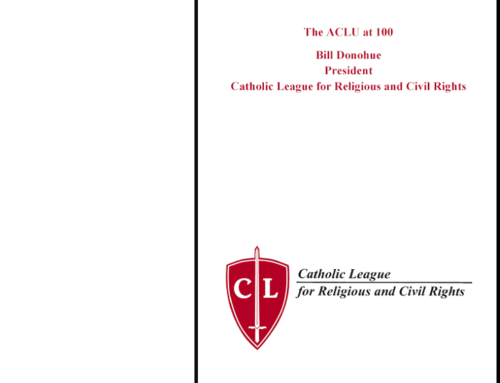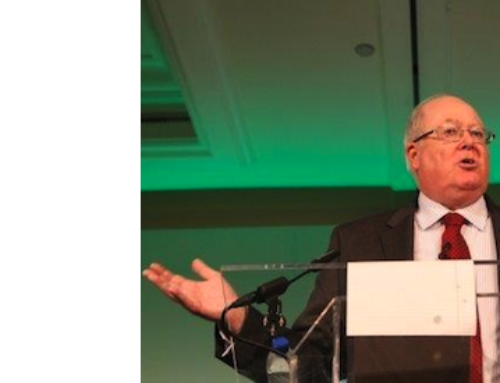Bill Donohue
The Catholic League commissioned McLaughlin & Associates to do a national survey of Catholics. From September 3-12, they polled 800 Catholics in an online survey. What follows is an abbreviated analysis of what will appear in the October edition of our monthly, Catalyst. To read the longer version now, click here. For the Topline, click here. For the PowerPoint, click here.
I had a hand in framing several of the questions; I put my sociological training to good use. Too often pollsters ask questions designed to elicit a response that dovetails with their own political leanings. Our survey asks a number of questions that other surveys of Catholics would never ask.
How accurate is the survey? If all Catholics were asked to respond, there is a 95% chance that the results of this survey would not be off by more than 3.4%, (higher or lower). Unlike other polls of Catholics, we made sure to include Hispanics (they were 35% of the respondents); we paid extra to have the answers of those who responded in Spanish translated. In short, we are proud of the scientific nature of the poll.
The numbers presented have been rounded and may not equal 100%. Here is a selection of some of the findings.
When asked how important your Catholic faith is in your life, 9-in-10 said it was important. One of the most encouraging findings was the large number of Catholics who rarely or never attend church who said that their Catholic faith was important to them: 78% said it was!
Are the news media biased against Catholics? A majority (57%) agree that it is, and only 31% disagree.
Does this matter? Yes. It no doubt helps to explain why 62% of Catholics agree that “it is getting harder to practice your faith and express your faith publicly in America.”
Is the Catholic Church an important voice of morality in America? You bet it is: 75% say it is. This includes 86% of weekly and 74% of monthly churchgoers; almost 7-in-10 (68%) of who those who rarely or never go to church also agree.
When asked if the Catholic Church should speak out more on moral issues, the results were auspicious: by a margin of 74% to 19%, respondents answered affirmatively. This is good news for those clergy members who may have been intimidated from speaking out more—the laity want you to speak out more!
More good news: 73% of Catholics identify as personally pro-life; 23% say they are pro-choice (most of them say their faith is not important to them).
When asked to agree or disagree about the propriety of the government forcing Catholic doctors and Catholic hospitals to perform abortions or sex-transition services against their will, 72% said the government should not do so; 19% disagreed. Even seven-in-ten (69%) of those who rarely or never go to church say the government should not do so.
Respondents were asked about gay and transgender issues. “While it is wrong for small businessmen to refuse services to gays, they have a religious right not to provide services that force them to approve of same-sex marriage.”
“The Catholic Church should continue to teach that there are only two sexes, male and female, and should not change its teaching.” Six-in-ten (59%) agreed and a third (32%) disagreed.
October 11 marks the 60th anniversary of the beginning of Vatican II. Did the Church go too fast or too slow in making changes, or were the changes just about right? There was no majority answer: 20% said the changes were too many and too fast; 37% said too few and too slow; 28% answered just about right.
The survey found that 66% of Catholics said that whether they agreed with most positions in the Catholic Church, or differed on some issues, the Church should not change its principles because of public opinion; only 27% said it should modernize. Even 55% of those who rarely or never go to church say the Church should not bend to what is popular!
I wanted to take it a step further. “If the Catholic church did NOT change its positions as many have suggested, how would that affect your commitment to the church?”
Those who said they would be “more committed” totaled 29%; 41% said they would be “as committed.” Which means that 70% of Catholics either would be more committed, or as committed, to the Church if it did not make the changes that many say it should make. Only 7% said they would be less committed.
The extent to which Catholics—even the non-practicing ones—find their faith to be important, is great news. That they also want the Church to speak up more on moral issues is something that cannot be punctuated enough.
Most impressive is the degree to which Catholics admire the constancy of Catholic teachings, even if they may not always agree with everything the Church teaches—they do not want it to cave into public pressure. This needs to be taken to heart by the laity and clergy alike. Most polls would never tap this subject.
Overall, the results were promising. They stand in stark contrast to the spin that critics of the Church continue to master.






